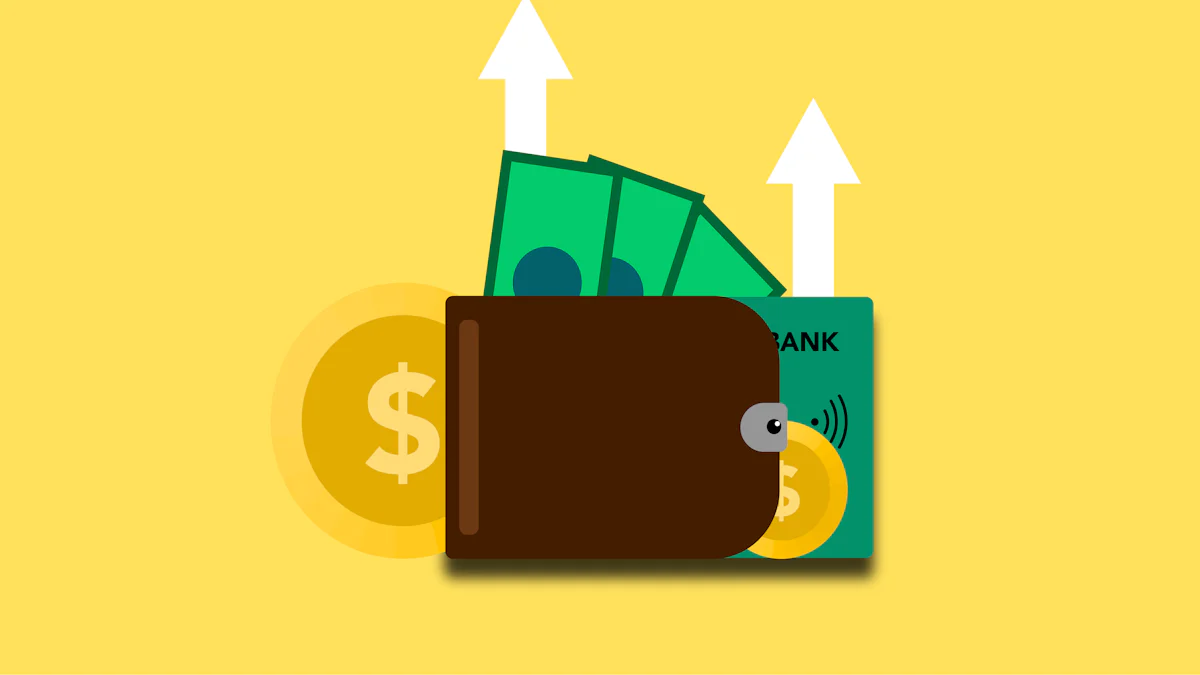Credit Scores 101

Your credit score plays a key role in your financial life. It’s a three-digit number that shows how well you manage debt. Lenders use it to decide if you qualify for loans, credit cards, or even rental agreements. A higher score often means better financial opportunities, like lower interest rates. Most Americans have at least a 'good' credit score, which falls between 670 and 739 on the FICO® scale. Understanding credit scores 101 can help you make smarter financial decisions and improve your overall financial health.
Key Takeaways
A credit score is a three-digit number. It shows how reliable you are with money. It helps decide if you can get loans or credit cards.
Always pay your bills on time. Paying on time helps your credit score the most.
Use less than 30% of your credit limit. This shows you can manage credit well.
Check your credit report often for mistakes. Fixing errors can boost your credit score and chances for loans.
Knowing your credit score range is important. Higher scores mean lower interest rates and better loan deals.
What Is a Credit Score?

Definition of a Credit Score
A credit score is a three-digit number that reflects your creditworthiness. It shows how likely you are to repay borrowed money. Lenders, landlords, and even some employers use this number to evaluate your financial responsibility. Credit scores typically range from 300 to 850. A higher score indicates better financial habits, while a lower score suggests potential risks.
Two major credit scoring models dominate in the United States:
FICO Score: The most widely used model, ranging from 300 to 850.
VantageScore: A newer model developed by the three major credit bureaus, also ranging from 300 to 850.
Both models assess your financial behavior, but they may weigh factors differently.
How Credit Scores Are Calculated
Your credit score depends on several factors. Payment history carries the most weight. Paying bills on time boosts your score, while missed payments lower it. The amount of credit you use compared to your total limit, known as the credit utilization ratio, also plays a key role. A lower ratio is better for your score. Other factors include the length of your credit history, the types of credit accounts you have, and recent credit inquiries. Each factor contributes differently to the final number.
Why Credit Scores Are Important for Financial Health
Your credit score affects many aspects of your financial life. A good score can help you qualify for loans with lower interest rates, saving you money over time. It can also make it easier to rent an apartment or get approved for a credit card. On the other hand, a poor score may limit your options and lead to higher costs. Understanding your score helps you make informed decisions about managing consumer credit and improving your financial health.
Factors That Affect Your Credit Score
Payment History and Its Impact
Your payment history is the most important factor in determining your credit score. It shows lenders how reliable you are in paying back borrowed money. A single missed payment can lower your score and stay on your credit report for up to seven years. The longer you delay payments, the more damage it causes.
Impact on Credit Score | |
|---|---|
Before 30 days | No credit impact; creditors typically do not report until 30 days late. |
30 to 59 days past due | Late payment reported; starts to negatively affect credit score. |
60 to 89 days past due | Increased damage to credit score; potential interest rate hikes. |
90 to 119 days past due | Seriousness increases; further penalties may apply. |
120 or more days past due | Debt may be sent to collections; account closure likely, leading to significant score decrease. |
After 7 years | Late payments can remain on credit report for up to seven years, but time without missed payments improves score. |
Paying bills on time is the best way to protect your score. Even if you miss a payment, catching up quickly can reduce long-term harm.
Credit Utilization Ratio
Your credit utilization ratio measures how much credit you use compared to your total credit limit. Lenders prefer a lower ratio because it shows you manage credit responsibly. Experts recommend keeping your utilization below 30%. For example, if your credit limit is $10,000, your balance should not exceed $3,000.
A utilization rate in the single digits often leads to excellent credit scores.
Paying off balances regularly helps lower your ratio.
Increasing your credit limit can also improve your utilization rate.
By maintaining a low credit utilization, you demonstrate financial discipline, which positively impacts your credit score.
Length of Credit History
The length of your credit history accounts for 15% of your FICO score. A longer history shows lenders that you have experience managing credit. It includes how long your accounts have been open, how active they are, and when you last used them.
If you’ve managed credit accounts successfully over time, lenders see you as more reliable. This can improve your credit score and help you qualify for better financial products. Keeping older accounts open and active is a simple way to build a strong credit history.
Types of Credit Accounts
The types of credit accounts you manage can influence your credit score. Lenders like to see a mix of credit types because it shows you can handle different financial responsibilities. Credit accounts generally fall into two categories: revolving credit and installment credit.
Revolving Credit: This includes credit cards and lines of credit. You can borrow up to a set limit and repay as needed. The balance changes based on how much you borrow and repay. Managing revolving credit responsibly, such as keeping balances low and paying on time, can boost your score.
Installment Credit: These are loans with fixed payments over a set period, like mortgages, auto loans, or student loans. Consistently making payments on these accounts demonstrates reliability to lenders.
Having both types of accounts in your credit history can improve your score. However, opening unnecessary accounts just to diversify your credit mix is not recommended. Focus on managing your existing accounts well. A strong mix of credit types, combined with good payment habits, signals to lenders that you are a trustworthy borrower.
New Credit Inquiries and Their Effects
When you apply for new credit, lenders perform a hard inquiry to check your credit report. These inquiries can temporarily lower your credit score. A single hard inquiry usually reduces your score by less than five points. However, multiple inquiries in a short period can have a more noticeable impact.
Credit scoring models recognize that you may shop around for the best loan rates. If you apply for several loans within a short window, such as for a mortgage or auto loan, these inquiries are often grouped together and treated as one. This minimizes the negative effect on your score. Rate shopping is encouraged because it helps you find better terms without significantly harming your credit.
On the other hand, frequent hard inquiries for different types of credit can raise red flags for lenders. Individuals with six or more recent hard inquiries are more likely to face financial difficulties, such as bankruptcy. To protect your score, avoid applying for multiple credit accounts unless necessary. Focus on maintaining a stable credit profile to build trust with lenders.
Credit Score Ranges and Their Implications

Overview of Credit Score Ranges
Credit scores fall into specific ranges that indicate your financial reliability. These ranges help lenders quickly assess your creditworthiness. The most common ranges are:
Score Range | |
|---|---|
Poor | 300 - 579 |
Fair | 580 - 669 |
Good | 670 - 739 |
Very Good | 740 - 799 |
Excellent | 800 - 850 |
Each range reflects how well you manage your credit. A higher score signals responsible financial behavior, while a lower score suggests potential risks. Understanding where your credit score falls can help you plan for better financial opportunities.
What Each Range Means (Poor, Fair, Good, Excellent)
Your credit score range determines how lenders view your financial habits:
Poor (300-579): This range indicates significant credit issues, such as missed payments or high debt. Borrowers in this category often face difficulty securing loans or credit cards.
Fair (580-669): A fair score shows some financial struggles but also room for improvement. You may qualify for loans, but interest rates will likely be higher.
Good (670-739): A good score demonstrates responsible credit management. Lenders see you as a low-risk borrower, which can lead to better loan terms.
Very Good (740-799): This range reflects strong financial habits. Borrowers here often receive favorable interest rates and higher credit limits.
Excellent (800-850): An excellent score represents exceptional creditworthiness. You can access the best financial products with the lowest interest rates.
Knowing what each range means helps you understand how your credit score impacts your financial opportunities.
How Lenders Use Credit Scores to Make Decisions
Lenders rely on credit scores to evaluate your financial reliability. They use this information to decide whether to approve your loan or credit application. Here’s how they assess your credit score:
They review your payment history to check if you pay bills on time. Consistent payments show reliability.
They analyze your outstanding balances and credit utilization to gauge your financial behavior.
They consider the length of your credit history. A longer history with responsible management signals lower risk.
Lenders also use credit scores to determine loan terms. For example, borrowers with scores between 720-850 often receive interest rates as low as 10.73%-12.50%. In contrast, those with scores between 300-629 may face rates as high as 28.50%-32.00%. A higher credit score can save you thousands of dollars over time.
By understanding how lenders use credit scores, you can take steps to improve your score and secure better financial opportunities.
How to Improve Your Credit Score
Pay Bills on Time Consistently
Paying your bills on time is one of the most effective ways to improve your credit score. Late payments can harm your score and remain on your credit report for years. To stay consistent, you can adopt several strategies:
Create a routine for paying bills to stay organized.
Use a calendar or app to track due dates and set reminders.
Set up automatic payments for recurring bills to avoid missing deadlines.
Pay your credit card bills early to show responsible financial behavior.
Consolidate bills to simplify your payment process.
If autopay doesn’t work for you, consider a manual system. Mark payment dates on a calendar or use apps designed for bill tracking. By staying proactive, you can avoid late payments and protect your credit score.
Reduce Credit Card Balances
High credit card balances can negatively impact your credit utilization ratio, which is a key factor in your credit score. Keeping your balances low shows lenders that you manage credit responsibly. Aim to use less than 30% of your total credit limit. For example, if your limit is $5,000, try to keep your balance below $1,500.
Here are some tips to reduce your balances:
Pay more than the minimum amount due each month.
Focus on paying off cards with the highest interest rates first.
Avoid making unnecessary purchases on your credit cards.
Consider transferring balances to a card with a lower interest rate.
Reducing your balances not only improves your credit score but also saves you money on interest payments. Regularly paying down your debt demonstrates financial discipline to lenders.
Avoid Opening Too Many New Accounts
Opening multiple new accounts in a short period can hurt your credit score. Each application triggers a hard inquiry on your credit report, which may cause a slight drop in your score. If you open several accounts at once, the impact can add up. Lenders might view this as risky behavior, making it harder for you to qualify for future credit products.
To avoid this, only apply for new credit when necessary. Focus on managing your existing accounts well. If you’re shopping for a loan, try to submit applications within a short time frame. Credit scoring models often treat multiple inquiries for the same type of loan as a single inquiry, minimizing the effect on your score.
By limiting new accounts, you maintain a stable credit profile and build trust with lenders over time.
Monitor Your Credit Report for Errors
Your credit report contains detailed information about your financial history. Errors on this report can harm your credit score and limit your financial opportunities. Monitoring your credit report regularly helps you identify and correct mistakes before they cause long-term damage.
Common errors on credit reports include:
Incorrect personal details, such as your name, phone number, or address
Accounts belonging to someone with a similar name
Accounts opened fraudulently due to identity theft
Closed accounts listed as open
Being listed as the owner of an account when you are only an authorized user
Accounts incorrectly marked as late or delinquent
Incorrect dates for account activity
Duplicate listings of the same debt
Incorrect balances or credit limits
Reinserted incorrect information after a previous correction
Accounts appearing multiple times under different creditors
You can access your credit report for free from the three major credit bureaus—Experian, Equifax, and TransUnion—once a year through AnnualCreditReport.com. Review each report carefully for errors. If you find a mistake, file a dispute with the credit bureau that issued the report. Provide supporting documents to prove the error. Correcting inaccuracies can improve your credit score and ensure your report reflects your true financial behavior.
Build and Maintain a Long Credit History
A long credit history shows lenders that you have experience managing credit over time. It plays a significant role in determining your credit score. The length of your credit history includes the age of your oldest account, the average age of all accounts, and the activity on those accounts.
To build a strong credit history, keep your oldest accounts open and active. Closing old accounts can shorten your credit history and lower your score. Use these accounts occasionally to show activity, but avoid carrying high balances. If you are new to credit, consider opening a secured credit card or becoming an authorized user on someone else’s account. These options help you establish credit while demonstrating responsible use.
Maintaining a long credit history requires consistency. Pay your bills on time and avoid opening unnecessary accounts. Over time, your credit history will grow, improving your score and making you a more attractive borrower to lenders.
Credit Reports and Their Importance
What Is a Credit Report, and How Does It Relate to a Credit Score?
A credit report is a detailed record of your credit activity and financial history. It includes information such as your payment history, outstanding debts, and the types of credit accounts you hold. Credit bureaus, like Experian, Equifax, and TransUnion, compile this information into a report. Lenders use it to evaluate your financial behavior.
Your credit score, on the other hand, is a three-digit number derived from the data in your credit report. It provides a quick snapshot of your creditworthiness. While the credit report offers a comprehensive view of your financial habits, the credit score simplifies this information into a single number.
Aspect | Credit Report | Credit Score |
|---|---|---|
Definition | A detailed statement of personal and account information organized by a credit bureau. | A three-digit number calculated based on the analysis of information in a credit report. |
Purpose | Provides a comprehensive overview of credit history and current credit situation. | Represents overall credit risk at a glance, typically between 300 and 850. |
Understanding both helps you manage your finances better and improve your creditworthiness.
How to Access Your Credit Report for Free
You can access your credit report for free once a year from each of the three major credit bureaus. Visit AnnualCreditReport.com to request your reports. Reviewing all three reports ensures you get a complete picture of your credit history.
When you check your credit report, it does not affect your credit score. This is known as a "soft inquiry." Regularly reviewing your report helps you spot errors or signs of identity theft early. Staying informed about your credit activity is a key step in maintaining good financial health.
Steps to Dispute Errors on Your Credit Report
Errors on your credit report can harm your credit score and limit your financial opportunities. Disputing these errors is essential to ensure your report reflects accurate information. Follow these steps to resolve inaccuracies:
Review all three credit reports for mistakes.
Identify incorrect details, such as wrong account balances or accounts you don’t recognize.
Contact the credit bureau reporting the error. Provide a clear explanation of the issue.
Include supporting documents, such as account statements or proof of payment.
Send your dispute via certified mail to track its progress.
Keep copies of all correspondence and documents for your records.
Credit bureaus must investigate your dispute and respond within 30 days. Correcting errors can improve your credit score and ensure lenders see an accurate representation of your financial behavior.
Understanding and maintaining a good credit score is essential for your financial health. It opens doors to better loan terms, lower interest rates, and more financial opportunities. By following simple habits, you can protect and improve your score.
Pay your bills on time. Timely payments have the biggest impact on your credit score.
Keep your credit utilization low. Aim to use less than 30% of your available credit.
Monitor your credit reports regularly. This helps you catch errors or fraud early.
Adopting these habits ensures you stay in control of your financial future. Make credit scores 101 a part of your routine, and you’ll build a strong foundation for long-term success.
See Also
Essential Insights For Credit Card Interest Rates In 2025
The Importance Of Starting Your Finances Early
Self-Assessment: How To Identify Your Risk Profile

